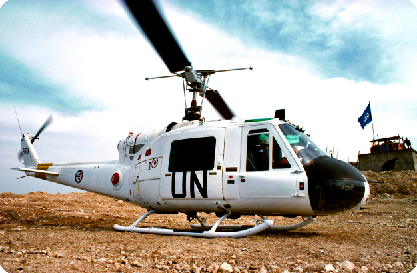DURING YOUR ASSIGNMENT

Being There
With almost 200 countries belonging to the United Nations organization, working for the United Nations means you will be working with people from many different backgrounds and cultures. In addition, taking up an appointment at a field mission or a UN duty station in a different country means you will not only be interacting with people from a different culture on a work-related basis but also living in a society whose beliefs, values and standards may be very different from your own.

While this is often a very enriching experience it can also be very difficult if you are not well prepared for the challenges implicit in such an environment. When you arrive at your new duty station, be prepared to handle changes in living conditions. The local food will probably be different from what you are used to eating. What is available may be limited.
 Culture shock might occur after you have been on-site for a sufficiently long enough period to see some of the elements of the region/country’s culture, and begin to feel the difference between this new culture and your “home” culture. Even if you have already been on several mission assignments, some element ofculture shock is to be expected. It is a normal human response as our bodies, minds and spirits adjust to the rhythms of another part of the world.
Culture shock might occur after you have been on-site for a sufficiently long enough period to see some of the elements of the region/country’s culture, and begin to feel the difference between this new culture and your “home” culture. Even if you have already been on several mission assignments, some element ofculture shock is to be expected. It is a normal human response as our bodies, minds and spirits adjust to the rhythms of another part of the world.
Toward the end of the adaptation period, culture shock begins to subside, and most likely you will acclimate to the surroundings. Part of adaptation will involve creating a different relationship with your family, friends and colleagues at home, and incorporating these newly defined relationships into your life on mission.
Stress in field work or changing jobs is stressful even if you remain within your own cultural context. Moving to a new duty station such as a Peacekeeping Field Mission often involves conditions such as a new language, new climate, new culture, and working with new organizations / governments, which can multiply by many times the stress you might normally feel.
It is important to have a general understanding of stress and how it affects you and that you learn to identify your own reactions to stressful situations and how to manage the stress to make the new assignment as productive and enjoyable as possible for yourself and for your family if they are accompanying you.
Learn more about understanding and managing your stress.
 To contact a Staff Counsellor in global duty stations, click here or write to scohq@un.org.
To contact a Staff Counsellor in global duty stations, click here or write to scohq@un.org.
